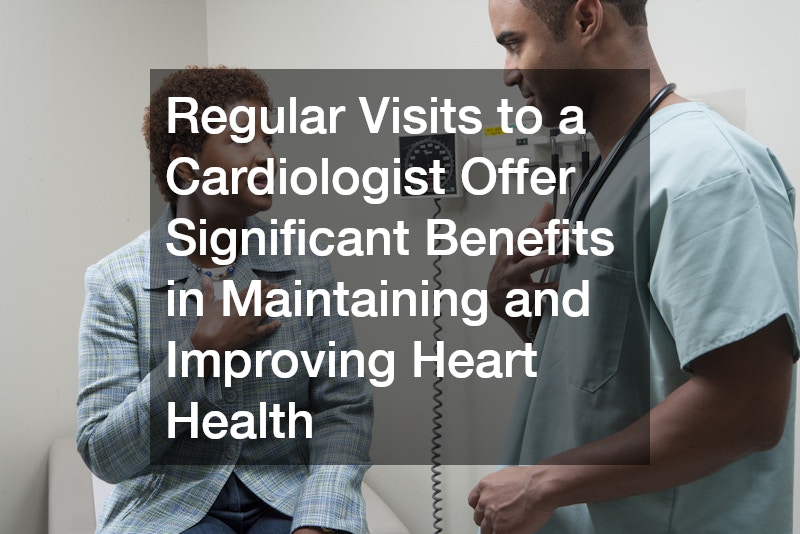Heart health is an essential component of overall wellness, yet it is often overlooked until symptoms arise. By understanding the significance of regular cardiac care, one can proactively maintain a healthy heart throughout their life. Seeing a cardiology doctor is crucial not only for diagnosing heart-related issues but also for adopting preventative measures to ensure long-term cardiovascular health.
How Do I Know If I Need to See a Cardiologist?
Understanding Symptoms of Heart Diseases
Recognizing the symptoms of heart disease can be lifesaving, as many heart conditions develop silently over time. Common symptoms that warrant a visit to a cardiology doctor include chest pain, shortness of breath, palpitations, and persistent fatigue.
Early detection through a cardiology consultation can prevent minor symptoms from escalating into serious complications.
While occasional discomfort may seem trivial, consistent or severe experiences should not be ignored. Symptoms like swelling in the legs or unexplained dizziness may also indicate underlying heart issues. It’s crucial to listen to your body and consult a professional when these signs appear.
Taking note of these symptoms allows individuals to seek medical advice promptly. By visiting a cardiology doctor, one can undergo necessary examinations to either confirm or dismiss any concerns. Timely intervention can significantly increase the effectiveness of treatments and improve outcomes.
Risk Factors That Necessitate Regular Check-Ups
Several risk factors heighten the likelihood of heart diseases, making routine check-ups with a cardiologist vital. Family history plays a significant role, as genetic predispositions can place individuals at a higher risk even if they lead a healthy lifestyle. Age, gender, and ethnicity are also contributing factors that can’t be modified.
Lifestyle choices, including diet, exercise habits, smoking, and alcohol consumption, can significantly impact heart health. Unhealthy habits such as smoking or excessive alcohol intake increase the risk of developing heart disease. Cardiologists can provide personalized advice to mitigate these risks through lifestyle changes.
Conditions like hypertension, diabetes, and obesity are well-known risk factors that necessitate regular monitoring by a cardiac specialist. These conditions can hasten the onset of heart diseases if not managed properly. Regular check-ups enable effective management and reduce the long-term impact of these risk factors on heart health.
What to Expect During a Cardiology Visit?
Initial Assessment and Screening
The first visit to a cardiologist involves a comprehensive assessment of one’s heart health. Patients can expect an in-depth conversation about their medical history, lifestyle, and any concerning symptoms. These details help the cardiologist tailor the consultation and plan necessary tests.
Physical exams might also be conducted to check for signs such as irregular heartbeats, arterial abnormalities, or fluid retention. Blood pressure, weight, and cholesterol levels are typical metrics evaluated during screening. A detailed review ensures all relevant factors are considered for an accurate diagnosis.
Beyond initial screenings, cardiologists also discuss preventative strategies for maintaining heart health. Based on individual risk factors, they may suggest lifestyle changes or medications to manage potential threats. An engaging consultation at the outset establishes a baseline for future monitoring.
Common Diagnostic Tests
Following the initial assessment, cardiologists may recommend specific diagnostic tests to gather more detailed information. Common tests include electrocardiograms (ECGs), which measure the electrical activity of the heart. Echocardiograms, stress tests, and blood tests are other frequent procedures aiding diagnosis.
ECG tests are non-invasive and crucial for identifying heart rhythm issues, providing vital information to the cardiologist. Echocardiograms use ultrasound technology to visualize the heart’s structure and functioning. By understanding the mechanics of the heart, cardiologists can detect potential issues early.
Stress tests measure the heart’s response to physical exertion, helping identify arterial blockages and other concerns. Together, these diagnostic tools afford cardiologists a holistic view of the patient’s heart health. The results guide treatment decisions and personalized care plans.
How Can Regular Visits to a Cardiologist Benefit My Overall Health?
Prevention and Early Detection of Heart-Related Issues
Regular cardiology visits play a crucial role in the prevention and early detection of heart-related issues. Through routine check-ups, individuals can catch potential problems before they escalate. Cardiologists utilize regular screenings to monitor changes and address concerns promptly.
Preventive cardiology focuses on stopping issues before they develop into severe conditions. Routine visits help identify risk factors like high cholesterol or elevated blood pressure early. Early interventions can mitigate health complications and extend a patient’s quality of life.
This proactive healthcare approach not only reduces medical costs but also significantly boosts long-term health outcomes. By integrating regular cardiologist consultations into one’s healthcare routine, patients can maintain their health more effectively. Early detection and prevention are pivotal pillars of cardiovascular health.
Managing Chronic Heart Conditions Effectively
For those living with chronic heart conditions like heart failure or arrhythmias, regular cardiologist visits are indispensable. Ongoing monitoring by a cardiologist ensures the condition is managed effectively, limiting its progression. It’s vital to adjust treatments based on the latest health data.
Regular communication with a cardiologist allows for tailored adjustments to medication and lifestyle regimes. This ensures treatments remain effective and side effects are minimized. Patients benefit from personalized care plans that adapt over time according to changing health needs.
Through a consistent partnership with a cardiologist, managing chronic conditions becomes more feasible. This relationship fosters a deeper understanding and control over one’s health journey. Continuous support helps patients navigate the complexities of chronic heart disease management successfully.
Regular visits to a cardiologist offer significant benefits in maintaining and improving heart health. From early detection and prevention to effective management of chronic conditions, cardiology appointments are an essential component of holistic health care. Prioritizing heart health through regular check-ups supports an enduring quality of life and well-being.
.


